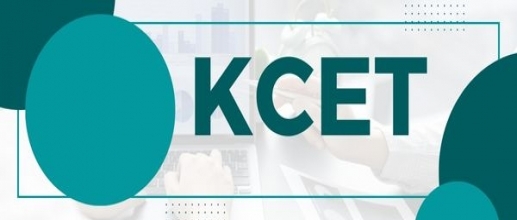
The Karnataka Examinations Authority (KEA) is going to change the syllabus and exam pattern for the KCET 2024. These changes will be applicable from 2025. They will soon update us on what exactly will be different. KEA also wants to change how they ask questions in the KCET test. They are going to put together a team of experts to help with this.
The current KCET syllabus has been around for a long time and has done its job well. However, with new advances in science, technology, Engineering, and maths (STEM), the authorities need to update the syllabus to include these new topics. Jobs and industries are changing fast, and the authority wants students to be ready for the future. Right now, the syllabus might not teach enough about new areas like Artificial Intelligence, Machine Learning, Robotics, and Blockchain Technology. That means there's a difference between what students are learning and what companies are looking for in new employees.
Transitioning from Memorization to Comprehensive Assessment
Right now, a lot of exam papers are mainly about remembering facts and dates. While it's good to know basic stuff, doing well in the future means we need to do more than just remember. Thinking critically, solving problems, and figuring out solutions are just as vital. This change is happening around the world in education, where using what you know and thinking about it is becoming more important.
There's talk that KEA might start organizing the KCET exam online next year. This change would be like many other big entrance exams and could make things easier to manage. Online tests have lots of benefits, such as quicker results, making it easier for more people to take the test, and possibly making the test more secure. But it's important to make sure everything goes smoothly, with good computers and help available for students who haven't done online tests before.
Reviewing The Process
The KCET syllabus and exam pattern are getting updated, and a group of experts will oversee this. This group includes teachers, professionals from different industries, and people who know a lot about exams. They will carefully look at how things are now and figure out what can be better. Their ideas will help create a new format that fits with today's technical education needs. Everyone, including students, can share their thoughts to make sure the new KCET test really checks how ready students are for college-level studies.
Impact on Students: Getting Ready for the New KCET
The changes in the KCET exam mean students need to make some changes in how they prepare. Here's what this could mean:
We might see some changes in our syllabus soon. Here's what a few updates will look like:
Adding more multiple-choice questions to check how well students grasp concepts and think analytically.
Bring in hands-on tests or experiments to see if students can use what they've learned in real-life situations.
Including questions that ask students to think deeply, judge, and combine ideas helps them become better problem solvers.
Changing how much each subject or topic counts towards the final grade to match what's important now in school and work.